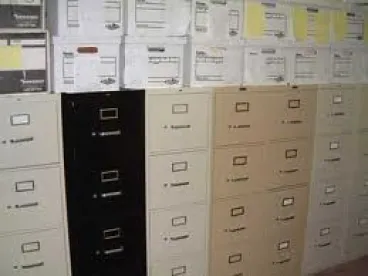F.T.C. v. DirecTV, Inc., Case No. 15-cv-01129-HSG (MEJ), 2016 WL 7386133 (N.D. Cal. Dec. 21, 2016)
In this case, the Court addressed Plaintiff’s motion for sanctions under Fed. R. Civ. P. 37(e)(1) but, despite acknowledging that Defendant “could have been more forthcoming in its disclosures to the FTC, and/or more proactive in its preservation efforts,” declined to grant the request to exclude evidence, including Defendant’s expert’s report, absent a showing of sufficient prejudice. Instead, the Court ordered Defendant to make its expert available for a 4-hour deposition, should Plaintiff find it useful.
All parties agreed that Defendant’s duty to preserve arose in 2010, when it was served with a Civil Investigative Demand. Plaintiff argued that Defendant nonetheless failed to preserve information in three categories: “(1) interactive website evidence that [Defendant’s expert] relied upon in his Report; (2) evidence of A/B testing [Defendant] conducted in the regular course of business; and (3) web-analytics data that had been maintained by SiteCatalyst.”
Notably, regarding the interactive website, Defendant claimed that in June of 2010 (and again in 2014) it informed Plaintiff that it would not maintain copies of its interactive website and that it was infeasible to do so, but, in 2013, indicated that it would produce monthly screenshots instead. Ultimately, Defendant produced or made available a number of alternative discovery sources related to the website, including the promised screen shots, the source code sufficient to reconstruct it, and two 30(b)(6) witnesses to testify regarding the source code. Regarding the A/B testing (which analyzes customers’ reactions to different experiences), Defendant asserted that it had produced the test relied upon by its expert and that the issue had already been resolved by the Court in a prior order. Finally, regarding the website analytics, Defendant focused primarily on Plaintiff’s failure to diligently pursue discovery and its delay in complaining about the alleged spoliation.
In its assessment of Plaintiff’s motion, the Court first found that Defendant “could have been more forthcoming in its disclosures … and/or more proactive in its preservation efforts” but also found that the plaintiff “could have been more proactive in its efforts to obtain discovery regarding A/B testing and website analytics” and ultimately concluded that while Defendant’s decisions may not have constituted “best practices,” Plaintiff failed to show it had been “sufficiently prejudiced to warrant exclusion of the information.” Regarding the interactive website, the Court further reasoned that while Plaintiff “may have preferred” preservation and production in a different format, the information produced by Defendant was sufficient for the needs expressed by Plaintiff (e.g., the ability to compare website versions, etc.) and that Plaintiff had failed to show otherwise. Regarding the A/B testing, the Court cited amended Rule 26(b)(1) for the proposition that Plaintiff was “only entitled to discover information that is relevant to the parties’ claims or defenses and that is proportional to the needs of the case,” and went on to reason that in light of Defendant’s assertion that it had produced all relevant tests, the Court could not sanction Defendant “solely because the [plaintiff] asserts potentially relevant other tests may have existed.” The Court also reasoned that Plaintiff “[did] not seem to have needed [the A/B testing or analytics] to prosecute this case” noting that Plaintiff “waited for months (and the close of discovery) to complain about the spoliation.”
While the Court declined Plaintiff’s request for evidence exclusion, calling such a sanction “greater than what is necessary to cure the prejudice the [Plaintiff] has identified,” the Court did order Defendant to make its expert available for a 4-hour deposition upon Plaintiff’s demand.



 />i
/>i

